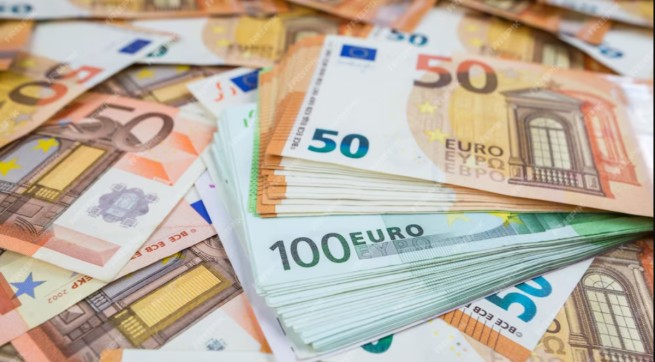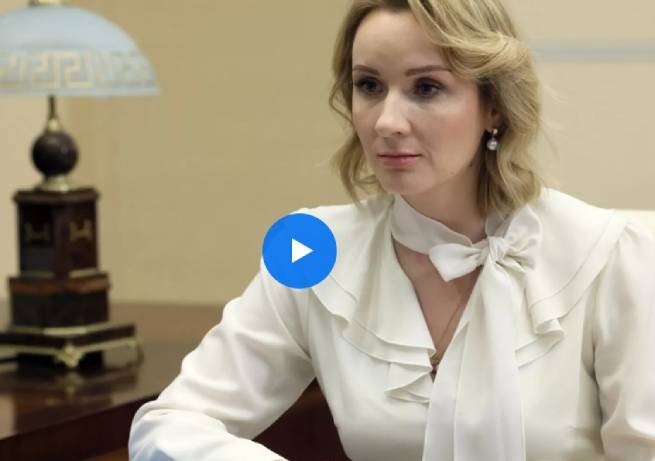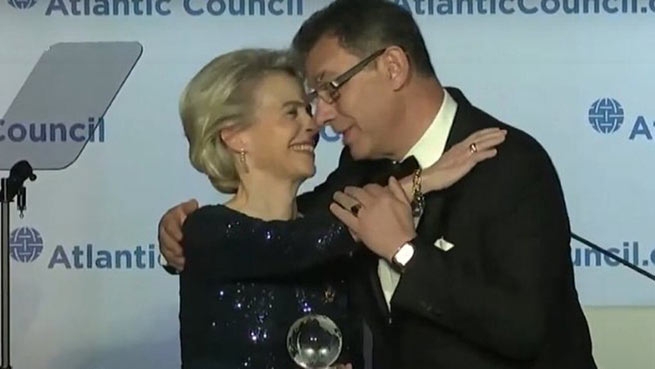Soon, a rather unpleasant invitation may arrive in the “mailbox” of the chairman of the Commission, Ursula von der Leyen, and so far no one knows how deep the matter has gone, and who else is involved in it.
MEPs chairing the European Parliament’s Covid-19 committee have decided to summon the head of the European Commission to appear before them in public. Edition Politico reports this information, referring to the statement of the Belgian MEP Kathleen van Brebbt, made exclusively for this news site.
The MEPs want to ask the chairman of the commission about the role she played in the negotiations on the conclusion multi-billion dollar contract for the supply of vaccines against coronavirus: it was signed at the height of the pandemic, and it is known that von der Leyen repeatedly exchanged undocumented text messages with Pfizer CEO Albert Burlas as part of negotiations.
The budget controller found that the head EU scrapped an existing set of rules to negotiate a tentative agreement with a US multinational, paving the way for a contract for 1.8 billion doses of a coronavirus vaccine due in May 2021. For all other EU deals between 2020 and 2021, a joint panel made up of officials from the commission and seven member states held preliminary negotiations. The results were then shared with the Vaccine Steering Board, made up of representatives from all 27 signatory EU Member States.
But this established procedure was not followed in the case of the largest EU contract, the Accounts Chamber notes. Instead, von der Leyen herself held preliminary contract negotiations in March and presented the results to the governing board in April. Meanwhile, the planned meeting of scientific advisers organized to discuss the EU vaccine strategy for 2022 never took place. writes edition.
“The European Union has spent a lot of public funds on the production and purchase of vaccines during the pandemic,” van Brebb said in a statement, adding that the European Parliament “has the right to be fully transparent about the details of these costs and the pre-negotiations that led to them.”
So far, the president of the European Commission has avoided questions about what happened in those crucial months. Neither the EU Ombudsman nor the Accounts Chamber have been able to shed light on the mystery of this huge deal. The European prosecutor’s office, armed with legal powers lacking in other oversight bodies, confirmed about three months ago that it had launched an investigation into vaccine contracts, but did not specify whether the president of the commission had been targeted.
The Covid Committee has been looking into the deal (the third and largest contract signed with Pfizer and its German partner BioNTech) and has heard from both the Accounts Chamber and the Ombudsman so far. Alberto Burla declined the subpoena, sending instead his subordinate.
In accordance with Parliament’s rules of procedure, the subpoena will be sent to MEP Roberta Metsola, who will then decide whether to ask von der Leyen to attend the hearing. Please note that the chairman of the commission has the opportunity to refuse to appear in the relevant parliamentary committee. However, as calls for more transparency grow louder and the corruption scandal Qatar Gate continues to rock Brussels, von der Leyen may feel compelled to take part in the event.
Not only von der Leyen is under the guns of MEPs. Van Brempt said in a statement that the committee would also ask that Pfizer’s access privileges to the European Parliament be withdrawn in response to Burla’s refusal to testify.
This has happened in the past too: legislators voted to ban Monsanto lobbyists in 2017 after the company refused to appear at a hearing. But this does not happen automatically – the decision must be approved within the framework of the internal processes of the Parliament. And individual MEPs can continue to invite Pfizer lobbyists as private guests.
But even symbolic moves are taking place as EU institutions try to repair their recent reputational damage. “Transparency is essential to ensure our citizens’ trust in European institutions,” Van Brempt explained.







More Stories
Poll: which European countries are ready to defend their homeland to the last
Greece must transfer the Patriot PAC-3 system to Ukraine with US “guarantees” against the Turkish threat
How will the confiscation of Russian assets affect the global financial system?